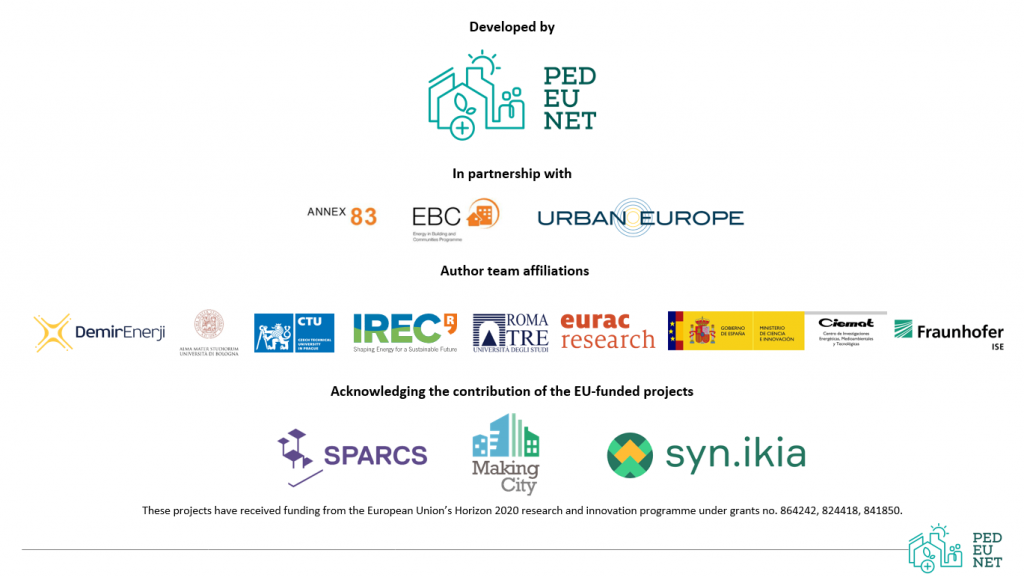| D1P001: Name of the project | |
| D1P001: Name of the project | ATELIER - AmsTErdam BiLbao cItizen drivEn smaRt cities |
| D1P002: Project assigned code | |
| D1P002: Project assigned code | 864374 |
| D1P003: Start date | |
| D1P003: Start date | 11/19 |
| D1P004: End date | |
| D1P004: End date | 10/25 |
| D1P005: Ongoing project | |
| D1P005: Ongoing project | Yes |
| D1P006: Funding programme/financing model | |
| FP7/H2020/HEU/DUT | yes |
| FP7/H2020/HEU | LC-SC3-SCC-1 |
| Interreg | no |
| National funding | no |
| Public-Private Partnership - please specify | no |
| Other | no |
| D1P007: Estimated project costs (Mill. €) | |
| D1P007: Estimated project costs (Mill. €) | |
| D1P008: Description of project objectives/concepts | |
| D1P008: Description of project objectives/concepts | ATELIER is a smart city project that demonstrates Positive Energy Districts (PEDs) within 8 European cities with sustainability and carbon neutrality as guiding ambitions. Amsterdam and Bilbao are the Lighthouse cities that will generate an energy surplus of 1340 MWh of primary energy, prevent 1,7 kt of CO2- and 23 t of NOx-emissions, and invest 156 mln Euros to realise their PEDs. Together with district users, ATELIER will showcase innovative solutions that integrate buildings with smart mobility and energy technologies to create a surplus of energy and balance the local energy system. Bratislava, Budapest, Copenhagen, Krakow, Matosinhos, and Riga are the Fellow cities that will replicate and adapt successful solutions. All cities will establish a local PED Innovation Atelier to co-produce locally embedded, smart urban solutions. In the ateliers, the local innovation ecosystem (authorities, industries, knowledge institutes, citizens) is strengthened, enhancing embeddedness and removing any obstacles (legal, financial, social, etc.) for implementation of the smart solutions. The Innovation Ateliers are designed to be self-sustaining and to live on after the project has ended. The ateliers are engines for upscaling solutions within the ATELIER-cities and replication to other EU-cities. ATELIER integrates a high degree of citizen engagement throughout the project, by actively involving local residents (>9000), local initiatives, and energy communities in activities to align technical solutions with citizens’ objectives and behaviour. Each of the cities will develop a City Vision 2050 that creates the roadmap for upscaling the solutions in the long term. ATELIER has the ambition to pave the way for “energy positive cities” in Europe. All ATELIER activities will be monitored (socially and technically), and lessons learned are systematically drawn and disseminated to relevant SET-plan groups, city networks, and innovation forums. |
| D1P009: Description of project upscaling strategies/potential | |
| D1P009: Description of project upscaling strategies/potential | The ATELIER project involves eight cities, two light house cities (Amsterdam and Bilbao) and six fellow cities (Bratislava, Budapest, Copenhagen, Kraków, Matosinhos and Riga). Results from the LHCs will be replicated in the FCs. Additionally, the lessons learnt from the PEDs implementation in the LHCs will be embedded within the cities to facilitate scalability within the cities. Various tools and methods have been employed for this including "Innovation Ateliers" for stakeholder engagement, City visions, city events etc. |
| D1P010: Number of PED case studies in the project | |
| D1P010: Number of PED case studies in the project | 2 |
| D1P011: Case Study | |
| D1P011: Case Study | |
| D1P012: Description of project expected impact | |
| D1P012: Description of project expected impact |
|
| D1P013: Standardization efforts | |
| D1P013: Standardization efforts | |
| D1P014: Sources | |
| D1P014: Sources | |
| D1P015: Can you specify a suitable contact person regarding the load-management approach within your PED project? | |
| Name | Omar Shafqat |
| o.shafqat@hva.nl | |
| D1P016: Would you be willing to share data from your PED project for research purposes? | |
| D1P016: Would you be willing to share data from your PED project for research purposes? | Yes |

Authors (framework concept)
Beril Alpagut (Demir Energy); Giulia Turci (University of Bologna); Michal Kuzmic (Czech Technical University in Prague); Paolo Civiero (Università Roma Tre); Serena Pagliulia (University of Bologna); Oscar Seco (CIEMAT); Silvia Soutullo (CIEMAT); Daniele Vettorato (EURAC Research, IEA Annex 83); Bailador Ferreras M. Almudena (CIEMAT); Vicky Albert-Seifried (FHG ISE)
Contributors (to the content)
Laura Aelenei (LNEG), Nienke Maas (TNO), Savis Gohari (OsloMet), Andras Reith (ABUD), Ghazal Etminan (AIT), Maria-Beatrice Andreucci (Universita Sapienza), Francesco Reda (VTT, IEA Annex 83), Mari Hukkalainen (VTT), Judith-Borsboom (Locality), Gilda Massa (ENEA), Jelena Ziemele (University of Latvia), Nikola Pokorny (CVUT), Sergio Diaz de Garayo Balsategui (CENER, IEA Annex 83), Matthias Haase (ZHAW, IEA Annex 83), Christoph Gollner (FFG, JPI UE), Silvia Bossi (ENEA, JPI UE), Christian Winzer (Zurich University of Applied Science), George Martinopoulos (Centre for Research and Technology Hellas), Maria Nuria Sánchez (CIEMAT), Angelina Tomova (Energy Agency of Plovdiv), Oya Tabanoglu (Demir Enerji), Jelena Brajković (University of Belgrade), Juveria Shah (Dalarna University), Michela Pirro (ENEA), Francesca Sabatini (University of Bologna)
Implemented by
Boutik.pt: Filipe Martins, Jamal Khan
Marek Suchánek (Czech Technical University in Prague)